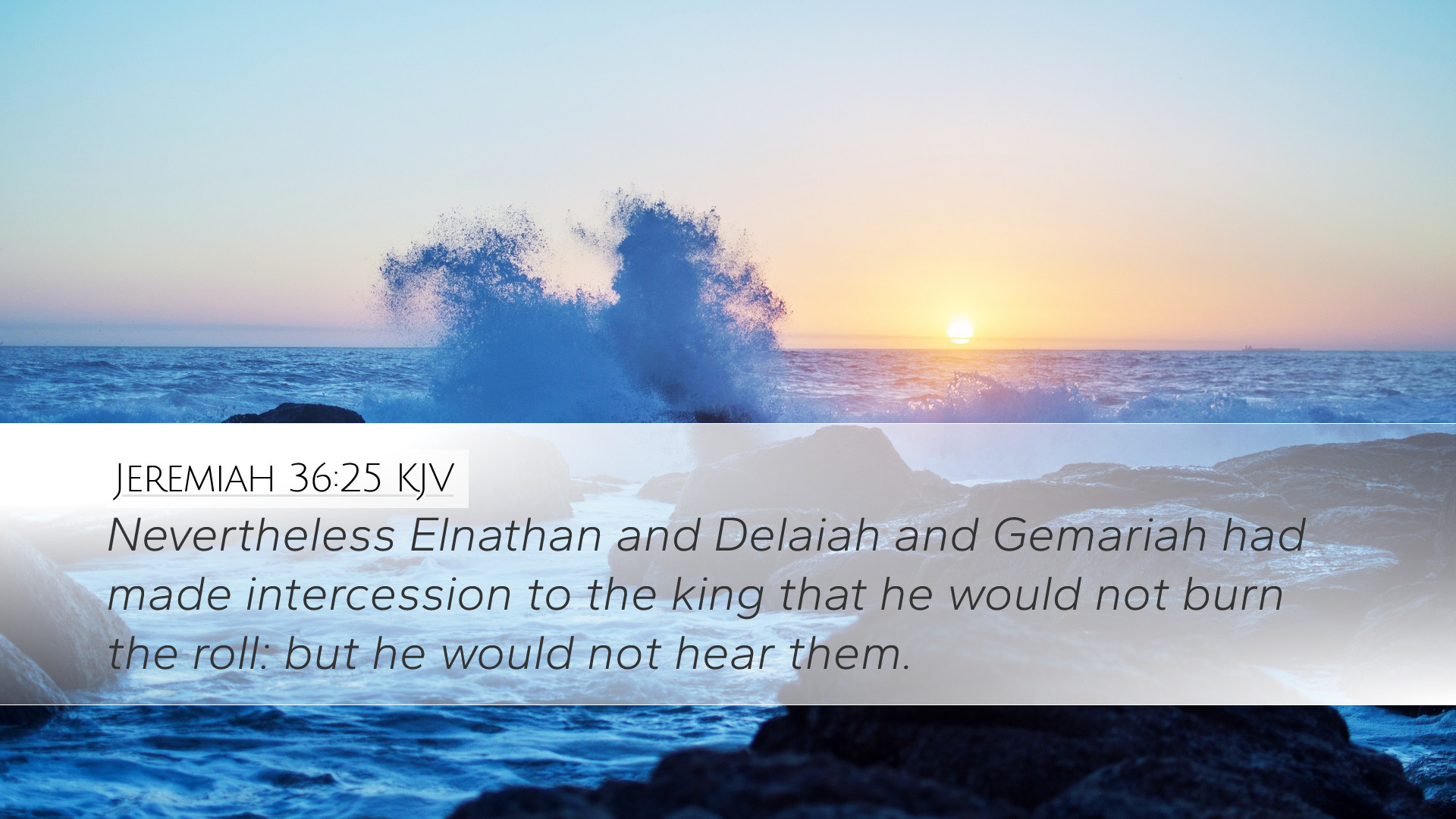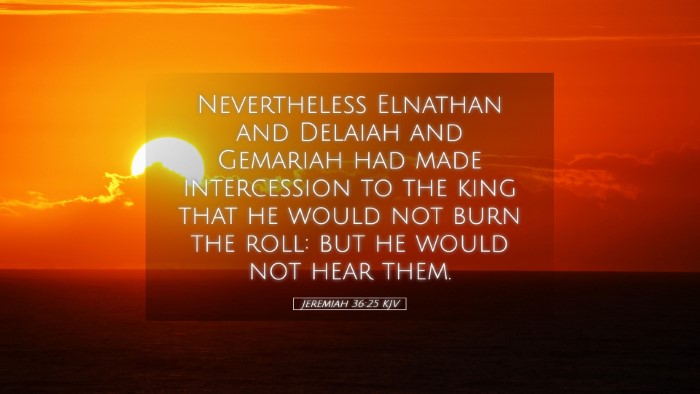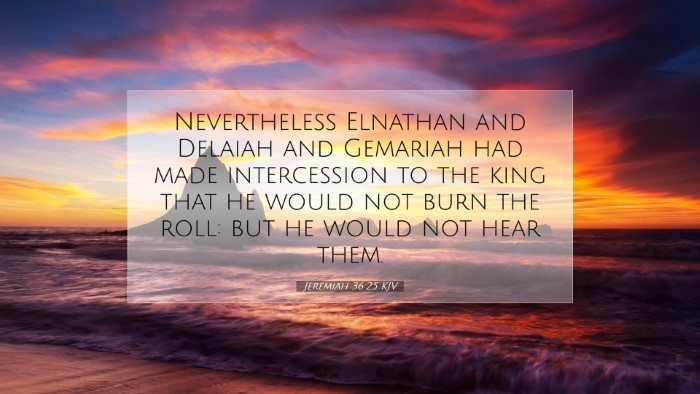Commentary on Jeremiah 36:25
Verse Context: Jeremiah 36:25 states, "Yet El Nathan and Delaiah had made intercession to the king that he would not burn the roll: but he would not hear them." This verse encapsulates a significant moment in the struggle between God's prophetic voice and the obstinacy of worldly powers, particularly during the reign of King Jehoiakim of Judah.
Meaning and Implications
This verse highlights the tension between prophetic authority and royal resistance. The actions of King Jehoiakim as depicted throughout the chapter reflect a deep-rooted defiance against God's word. The refusal to heed the pleadings of El Nathan and Delaiah serves as a poignant reminder of the perennial conflict between divine revelation and human will.
Key Themes
- Intercession and Advocacy: The intercession made by El Nathan and Delaiah illustrates the importance of advocacy in the face of oppression. They risked their positions to stand for the truth, recognizing the implications of the scroll's contents.
- Royal Disobedience: Jehoiakim's blatant refusal to listen signifies a broader rejection of God's authority. This disobedience is part of a pattern seen in leadership that prioritizes personal or political agendas over divine mandates.
- Consequences of Rejection: By dismissing the warnings from God's prophet, Jehoiakim faces dire consequences outlined through Jeremiah's prophecies. This serves as a cautionary tale for both leaders and the faithful.
Commentary Insights
Matthew Henry's Perspective
Matthew Henry emphasizes the gravity of the king's decision, noting that "the callousness of Jehoiakim reveals a hardened heart against divine messages." He reflects on the moral degradation of a leader who not only refuses to listen but actively seeks to suppress God’s word. Henry's discourse focuses on the futility of resisting divine authority and how it ultimately leads to destruction, both personally and nationally.
Albert Barnes' Comments
Albert Barnes provides a more detailed analysis of the political climate during Jehoiakim's reign. He points out that "the king's pride and ambition blinded him to the realities of his own impending doom." Barnes links the historical context to the present, urging contemporary leaders to remain humble and receptive to correction. His commentary sheds light on how ignoring God’s communication can lead to catastrophic outcomes.
Adam Clarke's Observations
Adam Clarke offers a theological reflection on the act of burning the scroll, interpreting it as a symbolic rejection of God’s covenant with Israel. He observes, "By destroying the word, Jehoiakim attempted to erase the accountability that comes with God's commands." Clarke emphasizes the durability of God’s word, noting that although the scroll was burned, the messages contained within it would ultimately prevail, as seen in Jeremiah's subsequent actions to reproduce and disseminate it again.
Application for Today
This passage offers profound lessons for pastors, students, and theologians. It challenges readers to consider their own responsiveness to God's voice. Are we, like Jehoiakim, guilty of ignoring or suppressing truths that discomfort us? The intercession by El Nathan and Delaiah serves as a model for us to follow; standing boldly for truth in moments of crisis.
Practical Reflections:
- Embrace Humility: Leaders must practice humility, recognizing their dependence on God's guidance.
- Encourage Advocacy: Cultivate a spirit of intercession and advocacy within communities of faith.
- Uphold God's Word: Cherish and defend the truths found in Scripture, understanding their eternal significance.
Conclusion
Jeremiah 36:25 is not merely an ancient account of royal obstinacy; rather, it stands as an eternal testimony to the importance of heeding God’s word and fulfilling the prophetic calling. The responses of El Nathan and Delaiah challenge us to remain steadfast in faith and to ensure that we honor God above all worldly influences.


